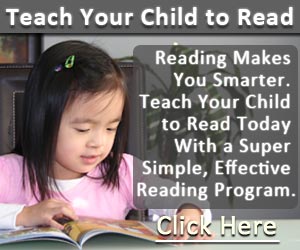Has your baby started teething yet? There's no set timeline for when a baby starts to teeth nor is there a set time on how long or how painful the process is. This is very different for every baby, and parents need to pay extra attention. You might sometimes see a lump in the gum for a few weeks before the tooth cuts through, and there are other times, when it seems to magically show up overnight! Different babies will show different symptoms of teething.
Certainly the uniqueness of each baby and how they teeth was very apparent with our own children. With our daughter, her teething process seemed to not bother her at all, but for our son, it's a different story. For quite a few times just before a new tooth cut through, he would get feverish for 2 to 3 days! Sometimes, it would be a high fever as well. We were quite worried the first time, and made a quick trip to the emergency room! A few days later after the fever went away, we could see his new tooth. This feverish symptom happened many times during our son's teething process, and we learned to deal effectively with it as well - and no more panic trips to the emergency room either. One common symptom is that both of our babies drooled heavily, and would try to chomp on anything they can wrap their gums around. =)
6 Month Old Baby Weight
By the time an average baby is 6 months old (about 26 weeks), he or she should weigh around 15.5 to 16 pounds, and measure around 26 to 26.5 inches. Below we list some milestones you can expect to see in your child.
- baby can hold his or her steady, and is able to sit with back straight when propped up
- baby is able to roll back and forth in both directions
- baby is able to reach for things with good aim, and likes to grasp on to small objects and study it
Social and Emotional
- at 6 months, babies will try to mimic facial expressions
- your baby will pay attention to your emotions based on your facial expression such as sadness, happiness, and anger
- at this stage, your baby also begins to display different moods through their own body movements, sounds, and expressions
- your baby will have some recognition for their own name, and will respond when they are being called
- when a six month baby wants to be picked up, he or she will hold up their arms to signal that they want to be carried
- your baby begins to like his or her reflection in the mirror
- your baby discovers more and more about their own voice and learns to have more control over their voice
- he or she will experiment with different volumes and pitches of sounds
- your baby will make a wider variety of sounds, and squeals with delight when they are happy or excited
- your baby may make sounds or try to talk to toys
Below are some tips and ideas to help promote healthy development for your baby:
- take your baby out for a walk and get fresh air
- have some simple play time in front of a mirror and let your baby explore their own reflection in the mirror
- give clean rattles and teethers to play with and chew on
- provide your baby with a wide variety of colorful toys and objects
- have skin to skin contact with your baby
- try your best to respond to a crying baby within one minute
- talk to your baby often, and read stories
- don't over stimulate your baby
- play peek-a-boo games
- hum and sing nursery rhymes to your baby
- talk to your baby and encourage your baby to make more sounds



 Watch a 2 year old toddler read, and see how this child's reading skill develops at 3 and 4 years old.
Watch a 2 year old toddler read, and see how this child's reading skill develops at 3 and 4 years old.